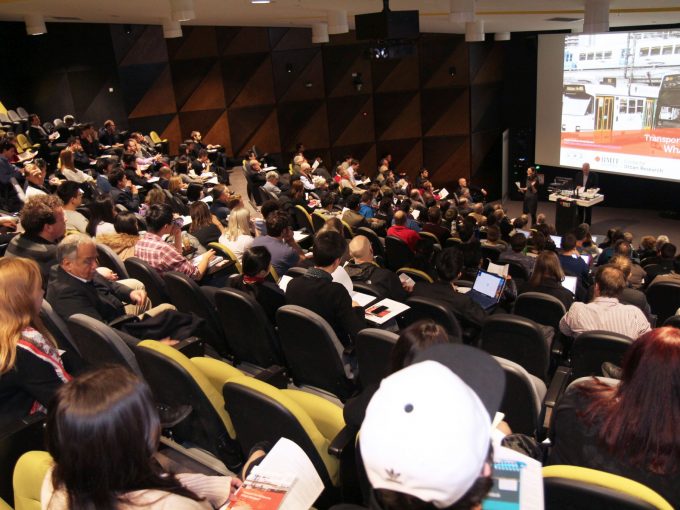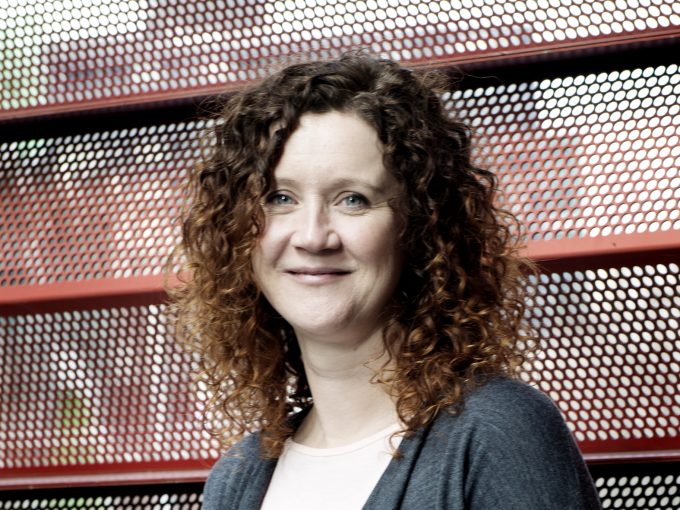This year the Centre for Urban Research, Urban Futures Enabling Capability Platforms and Social Change Enabling Capability Platform are presenting a number of events as part of Social Sciences Week.
With online and in-person events, these sessions look at how social sciences help us make sense of an uncertain future. How to live in a way that encourages biodiversity, how to understand climate change and the social responses to it, how to consider energy and transport transitions, and how social sciences can contribute to social change are just some of the themes considered by the expert panels.
Learn more about the exciting range of events and register at the links below.
Everyday actions for nature – ICON SCIENCE
Monday, 5 September 2022, 5:00–6:00pm, RMIT City Campus
ICON Science will present our research: how to prioritise, communicate and design biodiversity-positive actions that we can all engage with everyday. Learn from researchers about the choices you can make to have a positive impact.
This event will cover:
- Intro to the biodiversity extinction crisis and the critical role of human behaviour as a key part of the solution (Sarah Bekessy)
- Prioritising most impactful everyday behaviours (Lily van Eeden)
- How to talk about biodiversity conservation to different audiences (Alex Kusmanoff)
- Biodiversity-friendly coffee (Pia Lentini/Dale Wright)
- Designing or renovating your home with biodiversity in mind (Casey Visintin)
- Backyards for biodiversity (Holly Kirk)
- Greening our streetscapes (Thami Croeser)
Exploring Research Practices for Social Change: A Facilitated Discussion – Social Change Enabling Capability Platforms
Wednesday, 7 September 2022, 2:00–3:00pm, online
Social researchers, working within and across disciplines, contribute to positive change in the world. We engage with diverse communities, businesses, and governments, and work with a range of professionals and practitioners, to ensure our research outcomes make a difference. We co-create, implement, and assess research projects, leading to advances in policy and practice for the betterment of society.
How do we approach the design of research practices to foster social change? What are the common pain points, pitfalls, and markers of success in community-engaged research for societal impact? This interactive panel discussion will examine issues related to ethics, co-design practices, the use of social media to engage beyond universities – and much more. Our featured speakers will share success stories and lessons learned during their careers, as part of a facilitated discussion.
Panel Facilitator
Ms Joann Cattlin, PhD Student, School of Global, Urban and Social Studies, RMIT
Panellists
- Prof Lisa Given, Director, Social Change Enabling Capability Platform, RMIT
- Prof Annette Markham, Co-Director, Digital Ethnography Research Centre, RMIT
- Dr Rebecca Olive, Vice-Chancellor’s Senior Research Fellow, School of Global, Urban and Social Studies, RMIT
Social science responses to climate change – Urban Futures Enabling Capability Platforms
Thursday, 8 September 2022, 7:30–8:30pm, online
The climate emergency demands responses from all areas of human activity, including social science. But how have social sciences responded to date and what could and should they be doing? This panel will highlight some of the vital intellectual insights the social science have to offer about the nature of climate change and social responses to it. It will also explore the doing and organising of social science, including examples of initiatives seeking to advance climate change mitigation and adaptation by altering how social sciences engage with other disciplines and wider stakeholders through research and teaching. Facilitated by Prof Lauren Rickards, Director of the Urban Futures Platform at RMIT University, the panel will consist of:
- Assoc. Prof. Saffron O’Neill, Advancing Capacity for Climate and Environment Social Science (ACCESS) programme, Uni. Exeter, UK
- Dr Adam Standring, Centre for Environmental and Sustainability Social Sciences, Orebro Uni, Sweden
- Prof. Wendy Steele, Critical Urban Governance, Centre for Urban Research, RMIT
- Dr Blanche Verlie, Climate Change Transformations research program, Centre for Urban Research, RMIT
- Prof Noel Castree, Climate, Society and Environment Research Centre, University of Technology Sydney
Renewable energy: social dimensions, key questions, fast transitions – Urban Futures Enabling Capability Platforms
Friday, 9 September 2022, 11:00am–12:00pm, online
The need to accelerate the transition from fossil fuels to renewable energy is clear. So too are many of the technologies that are needed. What demands more attention are the social dimensions of the transition. If neglected, such social complexities stand to derail a successful transition. Conversely, if embraced, they could help turn a mere shift in infrastructure into a much larger, much needed, positive transformation, as emerging experience is demonstrating. This panel draws together industry leaders from across the renewable energy field in Australia to hear about the social dimensions that most frustrate and excite them, the research questions they most want social scientists to address, and how we can better work together across the academy-industry boundary to drive rapid, positive change.
Panelists
- Michael Anderson (Manager, Sustainability and Carbon, RMIT)
- Don Webb (Technical Practice Leader – Renewable Energy and Storage, AECOM)
- Nick Aberle (Policy Director, Clean Energy Council)
- Jarra Hicks (Director, Community Power Agency)
- Nicola Willand (Senior Lecturer, School of Property, Construction and Project Management, RMIT).
Social science in professional practice for a sustainable transport transition – Centre for Urban Research
Friday, 9 September 2022, 11:00am–12:30pm, online
Cities and communities are grappling with the challenge of providing inclusive and sustainable transport to meet climate, energy and social inclusion challenges. Often transport issues are posed as technical problems but invariably have social dimensions, whether behavioural, institutional or political. Social scientific expertise is thus a key skillset for practitioners working on sustainable transport problems. This session grapples with the complex social science challenges of making transport systems greener, more inclusive and more efficient by bringing together transport practitioners with advanced social science training to reflect on the ways in which social science perspectives can inform sustainable transport policy and practice.
The panellists will outline the social scientific aspects of their domain of transport and explain how social scientific training helps improve policy and practice responses.
The session will include panellists:
- Helen Rowe, Transport Program Impact Manager, Climate Works
- Luisiana Paganelli, Sustainable Transport Officer, City of Kingston
- David Ashmore, Executive Associate Transport Advisory, BIS Oxford Economics
The session will be chaired by Jago Dodson, Director of the Centre for Urban Research at RMIT University.
Metropolitan Provocations: Challenges and Opportunities for Australia
Friday, 9 September 2022, 12:00–1:30pm, online
The Australasian Cities Research Network is hosting its second Speaking Out seminar. This seminar brings together urban scholars from around Australia and New Zealand, to highlight and reflect upon some of the key challenges and opportunities facing Australian metropolitan regions.
Metropolitan regions within Australia (and globally) are complex dynamic social, economic, environmental and physical systems. They are where the majority of Australians live, work, and, play across a vast constellation of urban and suburban environments. As spatial systems, metropolitan Australia is in a constant state of evolution. The arrival of the COVID-19 pandemic in 2020 has exacerbated, accelerated and disrupted the socio-spatial and economic order of our metropolitan regions with the traditional role and function of CBDs and suburbs being brought into question. In this seminar the various speakers will provide a series of provocations on a diverse range of issues – cultural diversity, industrial lands, (sub)urban regeneration, densification, (sub)urban sustainability, and, (sub)urban precarity – that characterise contemporary Australian metropolitanism. A Q&A session will follow all presentations.
The seminar will be online on Friday 9 September at 12 noon.
The Australasian Cities Research Network (ACRN) “Speaking Out” Series focuses on the ways which urban research can work to:
- Inform urban policy/practice;
- Contribute to public debate/social movements, and/or
- Support/drive sustainability–led changes





